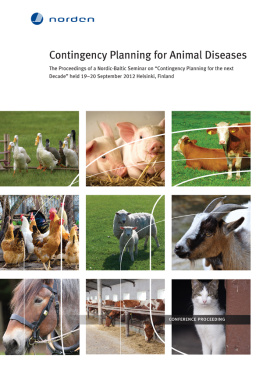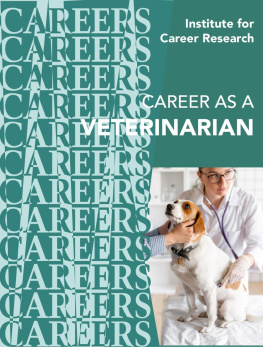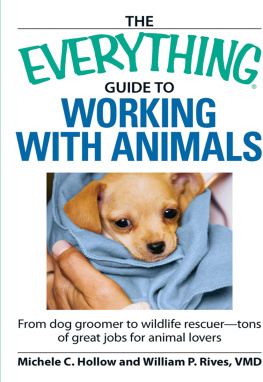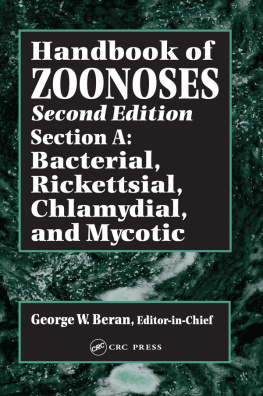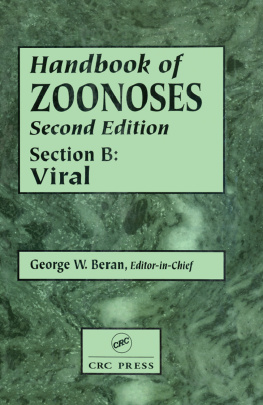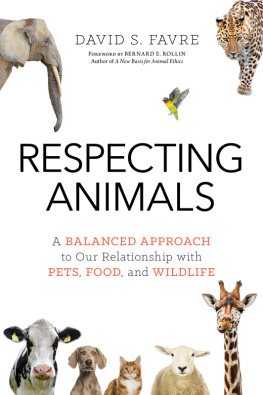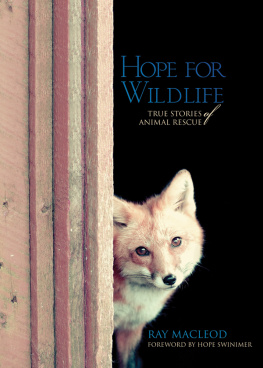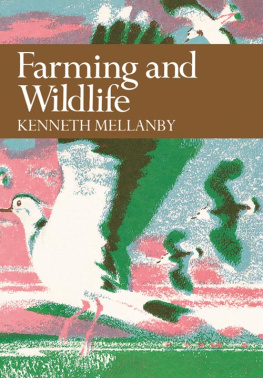
Jrgen M. Westergaard
Wildlife and Infectious Animal Diseases
The Proceedings of a Nordic Baltic seminar on the role of the wildlife as reservoir and/or spread of infectious animal diseases in the coastal areas of countries bordering the Baltic Sea 23 October 2013, Gdansk, Poland
TemaNord 2014:508
Wildlife and Infectious Animal Diseases
The Proceedings of a Nordic Baltic seminar on the role of the wildlife as reservoir and/or spread of infectious animal diseases in the coastal areas of countries bordering the Baltic Sea 23 October 2013, Gdansk, Poland
Jrgen M. Westergaard
ePub produktion: Rosendahls - BookPartnerMedia
ISBN 978-82-893-2713-8
http://dx.doi.org/10.6027/TN2014-508
TemaNord 2014:508
ISSN 0908-6692
Nordic Council of Ministers 2014
Layout: Hanne Lebech
Cover photo: ImageSelect; Jrgen M. Westergaard
Print: Rosendahls-Schultz Grafisk
Printed in Denmark

This publication has been published with financial support by the Nordic Council of Ministers. However, the contents of this publication do not necessarily reflect the views, policies or recommendations of the Nordic Council of Ministers.
www.norden.org/en/publications
Nordic co-operation
Nordic co-operation is one of the worlds most extensive forms of regional collaboration, involving Denmark, Finland, Iceland, Norway, Sweden, and the Faroe Islands, Greenland, and land.
Nordic co-operation has firm traditions in politics, the economy, and culture. It plays an important role in European and international collaboration, and aims at creating a strong Nordic community in a strong Europe.
Nordic co-operation seeks to safeguard Nordic and regional interests and principles in the global community. Common Nordic values help the region solidify its position as one of the worlds most innovative and competitive.
Nordic Council of Ministers
Ved Stranden 18
DK-1061 Copenhagen K
Phone (+45) 3396 0200
www.norden.org
Det Nordisk- Baltiske seminar omhandlende betydningen af dyreliv (den vilde fauna) som reservoir og/eller for spredning af smitsomme dyresygdomme i kystomrder i de lande, der grnser op til stersen, blev afholdt i Gdansk, Polen fra den 23 oktober 2013.
Formlet med seminaret omfattede:
- At gennemg dyrelivsbestanden som reservoir for smitsomme sygdomme, herunder fugleinfluenza, sygdomme hos vildsvin, hundegalskab og vektorbrne sygdomme.
- At skitsere den potentielle risiko for spredning af smitsomme sygdomme via dyrelivet in stersens kystomrder.
- At gennemg risikobaseret overvgning for smitsomme sygdomme, som forekommer eller mtte forekomme i terrestriske dyr i kystomrdet i lyset af klimandringer.
- At undersge muligheden for at etablere sygdomsovervgningen mere effektivt og opn besparelser i forhold til laboratoriemssige undersgelser.
Endvidere havde seminaret fokus p hvorledes man kan reagere overfor kontaktfladerne imellem dyreliv og produktions dyr.
P den frste dag af seminaret blev det belyst, hvorledes dyrelivet har stor konomisk, kologisk, social og kulturel vrdi for stersens kystomrder, og hvorledes det fremmer rekreation og turisme. Desuden, blev der givet oplysninger om: OIEs arbejdsgruppe som behandler sygdomme i dyr i naturen; fugle populationen i stersomrdet; smitsomme virus sygdomme i vilde fugle; sygdomsovervgningsprogrammer; migration af flagermus og observationer fra EU's inspektionsrejser vedrrende overvgning af dyrelivets sygdomme.
P seminarets 2. dag var der fokus p det terrestriske dyreliv med hensyn til biodiversitet og reservoir for smitsomme sygdomme, sygdomsovervgning, kontaktfladerne imellem dyrelivet og mennesker med hensyn til visse smitsomme sygdomme og beredskabsplanlgning vedrrende veterinrmyndigheders foranstaltninger til hndtering af kontakten imellem husdyr og dyrelivet i naturen.
Seminaret havde mere end 90 deltagere som kom fra de ni lande der grnser op til stersen Danmark, Sverige, Finland, Rusland, Estland, Letland, Litauen, Polen og Tyskland og fra Island og Norge.
Udbyttet af seminaret omfattede:
- Konstruktive dialoger.
- Tt samarbejde imellem videnskabsfolk, der arbejder med dyr i naturen, reprsentanter fra veterinre administrationer, der arbejder p central og lokal niveau, husdyr ejere, myndigheder og managers involveret i beskyttelse af dyr i naturen og i beskyttelse af dyrs og menneskers sundhed.
- Godt samarbejde imellem deltagere fra lande med en flles landegrnse.
Alle indlg p seminaret, som blev givet af foredragsholdere bosat i lande omkring stersen og foredragsholdere, der reprsenterede henholdsvis EU og OIE, gav et enestende grundlag for vrdifuld udveksling af synspunkter imellem foredragsholderne, eksperter og seminarets vrige deltagere.
I lyset af drftelserne og udveksling af synspunkter under seminaret kunne alle deltagerne i seminaret i den afsluttende samling vedtage 4 anbefalinger. Disse anbefalinger har fokus p:
- Sygdomsovervgning i grnseomrderne imellem forskellige lande.
- Beredskabsvelser, som retter sig mod truslen fra sygdomme i dyrelivet i naturen.
- Mlrettet aktiv sygdomsovervgning med hensyn til fugleinfluenza i fugle i naturen.
- Planlgning, gennemfrsel og evaluering af overvgnings-programmer for sygdomme i dyr i naturen.
Den fulde ordlyd af anbefalingerne er givet i afsnittet, der omtaler observationer, konklusioner og anbefalinger.
OIE = Office International des Epizooties; Verdensorganisationen for dyresundhed.
The Nordic Baltic seminar on the role of wildlife as reservoir and/or spread of infectious animal diseases in the coastal areas of countries bordering the Baltic Sea was held in Gdansk, Poland from 23 October 2013.
The objectives of the seminar included
- To review the wildlife populations as reservoirs for infectious diseases such as avian influenza, diseases of wild boar, rabies and vector borne diseases.
- To outline the potential risk of spreading infectious animal diseases by wildlife inhabiting the coastal areas of the Baltic Sea.
- To review risk based surveillance of infectious diseases occurring or potentially occurring in terrestrial animals in the coastal area in the light of climatic changes.
- To explore the possibility in making disease surveillance more efficient and obtain savings in relation to laboratory examinations.
Furthermore, the seminar had focus on how to respond to the wildlife/production animals interface.
Day one of the seminar highlighted how the wildlife have high economic, ecological, social and cultural value for the coastal areas bordering the Baltic Sea and have it contributes to recreation and tourism. Furthermore information was provided on activities of OIEs working group on wildlife diseases, the Baltic Sea avian wildlife population, infectious viral diseases in bird populations, disease surveillance programmes, bat migration and observations from EU audits covering monitoring and surveillance of diseases affecting wildlife.
The second day had focus on the mammal wildlife population with regard to biodiversity and reservoir for infectious diseases, disease surveillance and monitoring programmes, the wildlife/human interface concerning certain infectious diseases and contingency planning with regard to the response of veterinary services to the wildlife/production animals interface.
Next page

